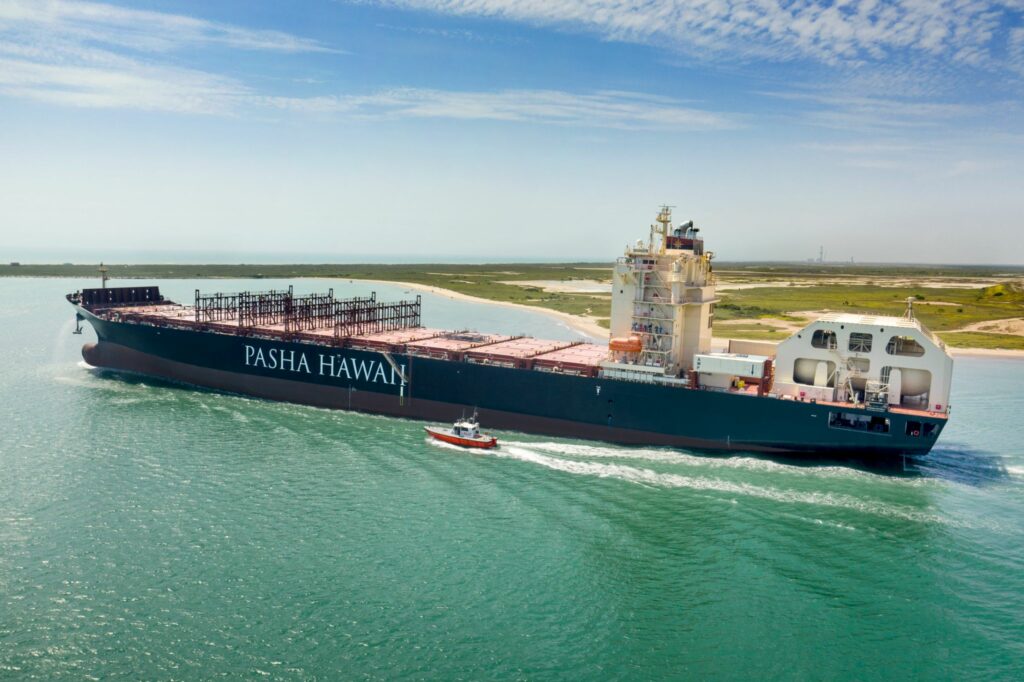The ITF Seafarers’ Trust has made a US$$55,000 emergency grant to enable local unions to help the families of those who have died or are in a serious condition, following a release of noxious chlorine gas at the port of Aqaba, Jordan in June.
13 people were reported killed and hundreds injured after a tank containing the toxic gas ruptured at the port June 27. The 25-tonne tank was being loaded by a dockside crane on to the cargo vessel FOREST 6 (IMO:9947354), as a cable snapped sending it crashing down and releasing clouds of the yellow gas.
When inhaled, chlorine turns to hydrochloric acid causing severe internal burns. Local hospitals have been overwhelmed as they deal with more than 250 people affected by the fumes, with at least 38 people in critical condition in Aqaba intensive care units.
Of the 13 people who died in the incident, nine were port workers – all union members. The other four killed are believed to be Chinese seafarers, whose bodies have already been repatriated.
Union support for affected families
ITF Seafarers’ Trust trustees approved the emergency grant to assist families and colleagues of those killed and injured at the port. The affected workers’ union, the General Union of Port Workers of Jordan, will work with those most in need to distribute the Trust’s funds. The union is well known to trustees, having been one of the core instigators of the Trust’s Arab World OSH project.
Chair of the ITF Seafarers’ Trust, David Heindel, who is also the chair of the ITF Seafarers’ Section, said he fully supported payment of the emergency grant.
“The thoughts of the global maritime community are with all those in Aqaba and their loved ones. No seafarer, docker, indeed –any worker–, should lose their life or health, just because they went to work that day. We hope that the Trust’s contribution can alleviate at least one worry from the shoulders of the workers and families affected,” he said.
Dockers call for urgent action
“We commend the swift actions of emergency responders at the port, but this accident should never have happened in the first place,” said Paddy Crumlin, ITF President and Chair of the ITF Dockers’ Section. “It throws into sharp relief the safety regime at this port and raises tough questions about how dangerous loads are typically handled in the region.”
“OSH is a fundamental workers’ right,” said Crumlin. “Tragedies like this have a massive impact, not just on the families of the victims, but on the wider workforce and port community.”
Crumlin said the ITF called for an urgent meeting with Aqaba port authorities to discuss how the incident will be investigated, to demand that a comprehensive and transparent inquiry be carried out, and to insist that changes are put in place to prevent further unnecessary deaths.
The ITF supports the more than 2,300 Jordanian port workers who are striking for better safety standards and the immediate replacement of dangerously worn-out safety equipment.
Wake-up call for Arab ports
Low, or unmet, occupational safety and health (OSH) standards in the region have concerned unions for some years, said Head of the ITF Seafarers’ Trust, Katie Higginbottom.
“It is a bitter irony that this tragedy should take place in Aqaba just we are rolling out a program to increase workers’ participation in occupational safety and health and raise awareness of their right to a safe workplace,” she said.
“We want to see all ports in Arab world safe for seafarers and for dockers, and that requires investment in the appropriate equipment for the job and systemic cultural change. That’s why we’ve funded digital resources in Arabic to educate port workers on the hazards, risks and necessary controls that need to be in place especially when handling dangerous cargo.
“I hope ports in the region take this as a wake-up call and learn lessons from this terrible event,” said Higginbottom.
Source: https://maritimefairtrade.org/global-unions-rally-behind-victims-of-port-of-aqaba-poison-gas-horror/






